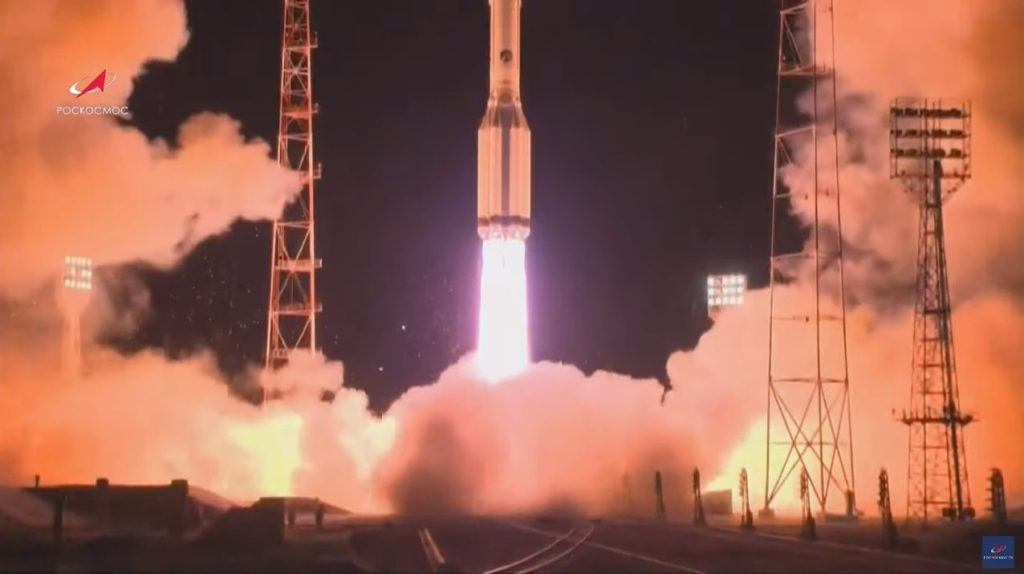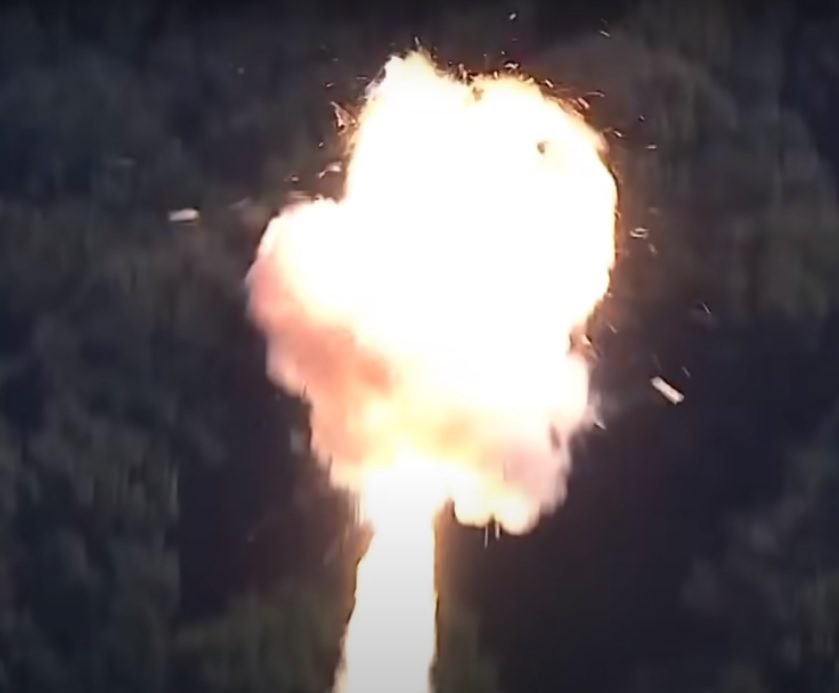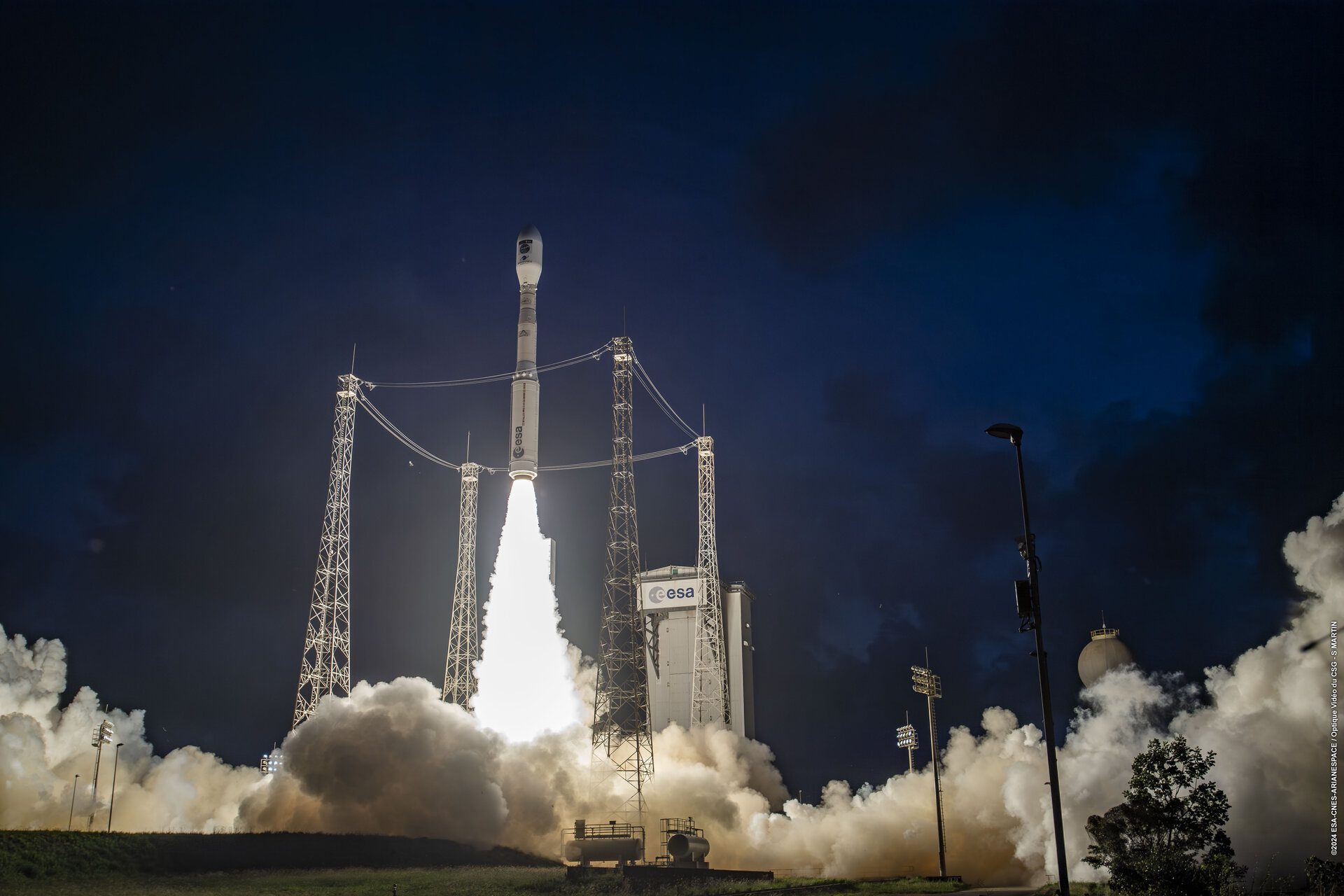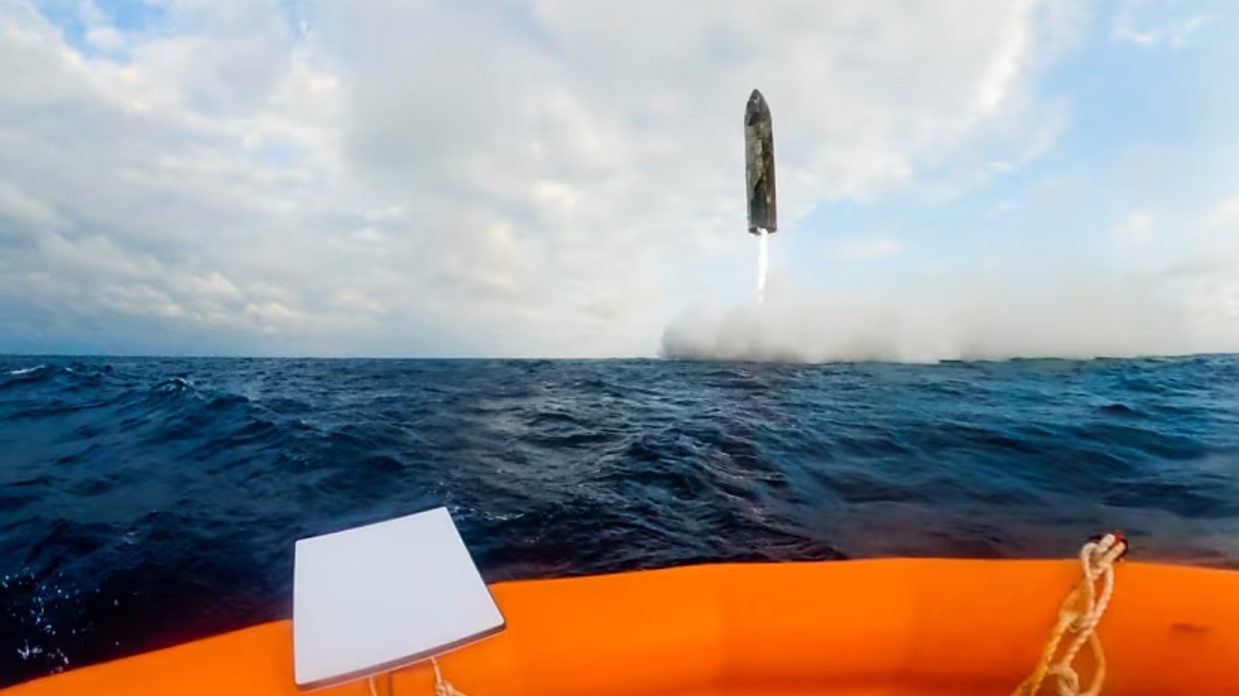A Proton M/Blok DM-03 launched the AngoSat 2 spacecraft from the Baikonur Cosmodrome near Tyuratam, Kazahkstan on 12 October at 1500 GMT. The launch was for the Angolan National Space Programme Office which owns the satellite.
The Russian-built AngoSat 2 satellite replaces AngoSat 1, the first Angolan satellite which was launched in December 2017. AngoSat 1 suffered a series of anomalies which eventually resulted in a failure to stabilise at its location. It was forcibly retired on 23 April 2018 as a result. AngoSat 2 was to have been built by RSC Energia, which built the original AngoSat 1, but the contractor was later changed to ISS Reshetnev with the satellite based on its EXPRESS 1000H (1000N) bus platform. Angosat 2’s launch was delayed for several months by the Russian invasion of Ukraine because, under retaliatory sanctions, the European Airbus DS was no longer allowed to supply the waveguides for the communications payload – and these had to be made in Russia.
Unlike regular rocket launches to the geostationary/geosynchronous orbit which tend to inject into a transfer orbit, from which the satellite itself has to circularise itself from, this launch was an “all the way” trip. That is to say, the Blok DM-03 made an additional later burn, in addition to its parking orbit and transfer orbit burns, to do the circularisation for the satellite. In this case, it left the satellite just above GEO (Geostationary Earth Orbit) to allow it to drift to its final operational longitude. Once in its final position the Angosat 2 is expected to operate for at least its minimum design life of 15 years.
Angosat 2 is believed to be insured, but only on the Russian insurance market.
Derek Goddard contributed to this story







